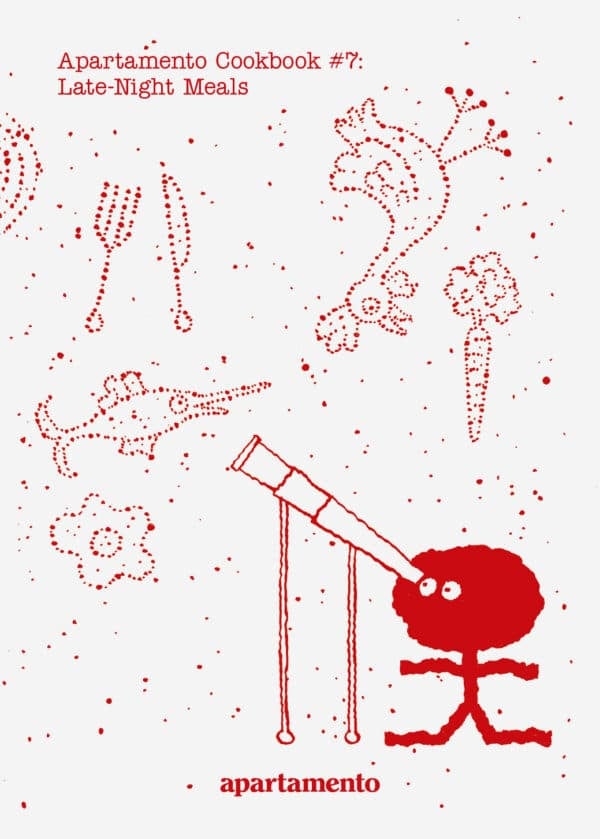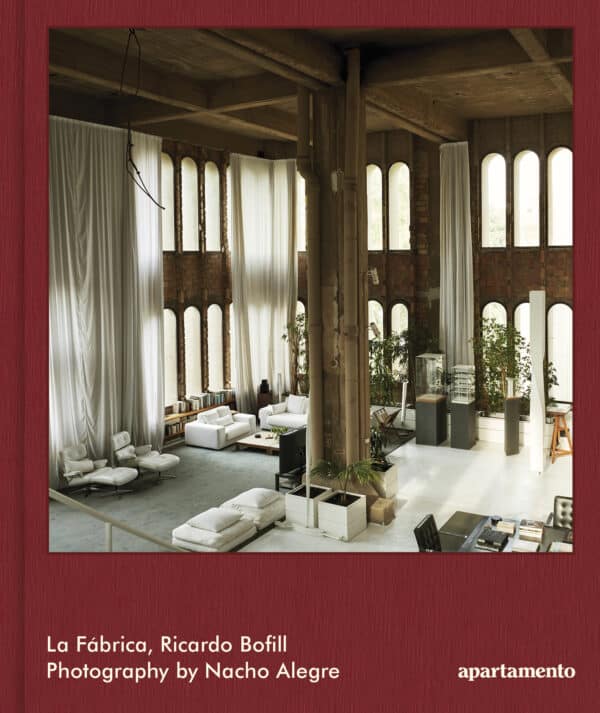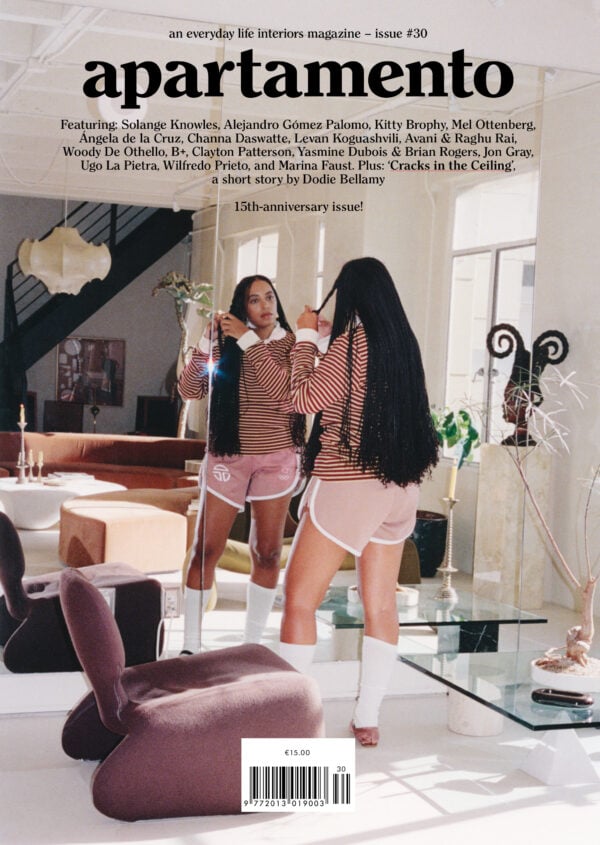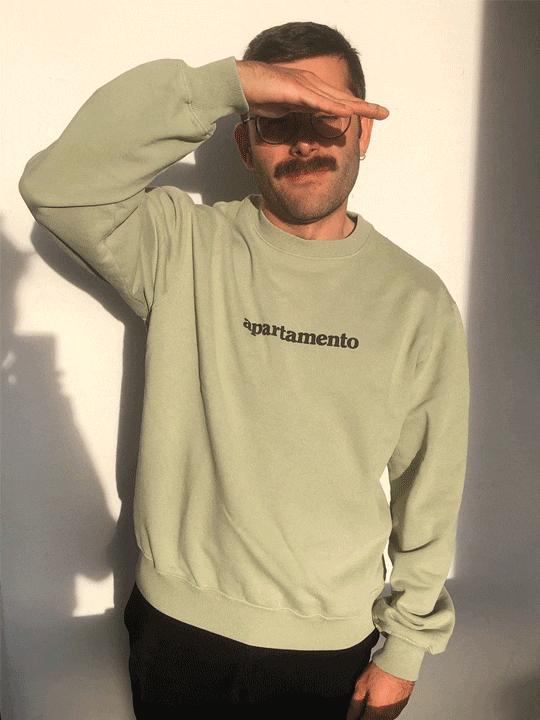Interview by Hayley Morgan
Photography Timothy Schaumburg
In just seven carefully drawn lines, Stefan Marx can tell a short story and change your frame of mind. Entry into his world is instant: eyes scan the page, tracing meandering limbs and bent text, his character’s crooked smile quickly mirrored in your own. But it’s not flippancy that fuels this fire. Stefan has particular affections—like record covers, books, illustrated iconography—that have inspired not just the beginnings of his artistic narratives but their placement too. His aversions also get a look-in, when alarm clocks and fried eggs are hugged by a ‘fuck reality’ sentiment, or when his jovial flop-eared dog takes a stand against the AFD, G20, Nazis, and Sundays.
In recent times, Stefan’s work has had some culinary concern that pushes beyond his often-drawn pizza debris, discarded booze, and chomped fruit; he’s also lent hand-painted editions to Berlin-fired porcelains and created a series of burning bananas for Olga Goose Candle. Though, admittedly, his real-life food foraging doesn’t yet move too far past potatoes. In even more recent times, Stefan has uprooted from Hamburg to call Berlin home. He has occupied his new digs, in the west, for just a few months. And when we talk, his studio is but a day old. Amid the freshness, we talk about necessities, feelings, and colours—the kinds of quick, ordinary bites that puncture his artworks (and his life), that make his work (and his self) penetrable, enjoyable, and so sharply satisfying.
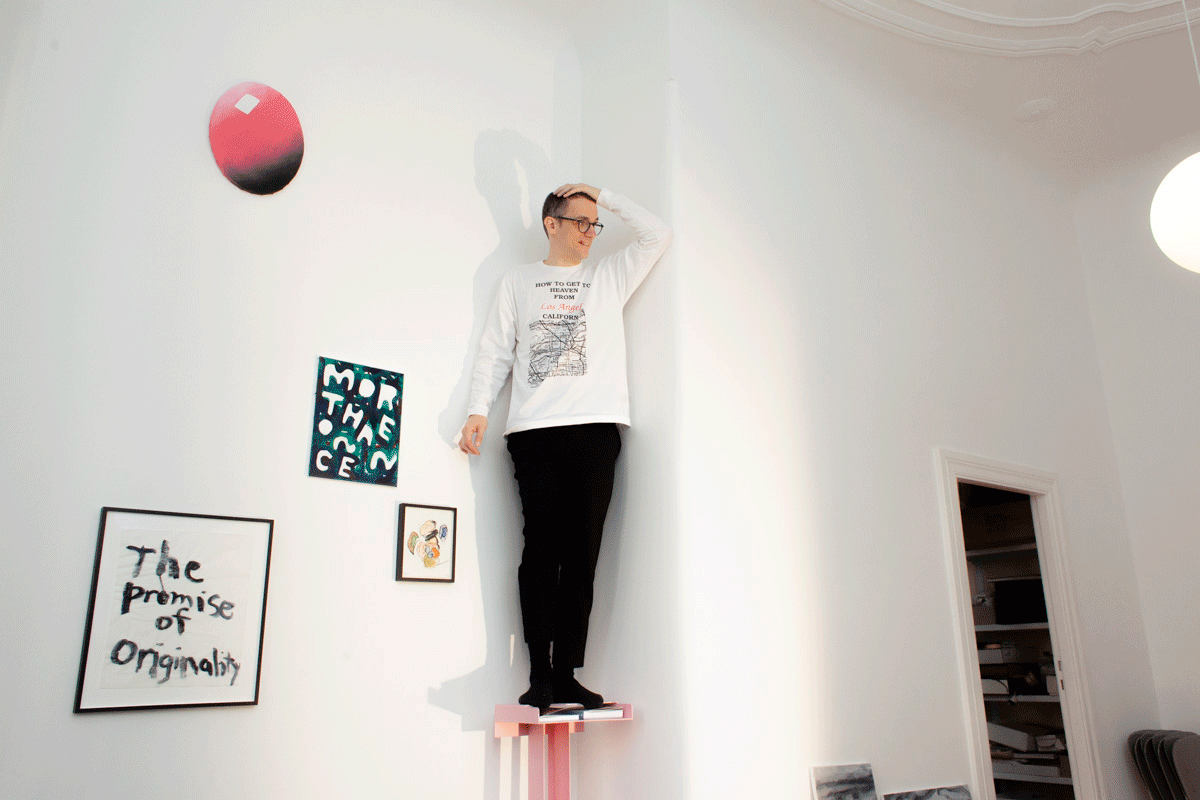


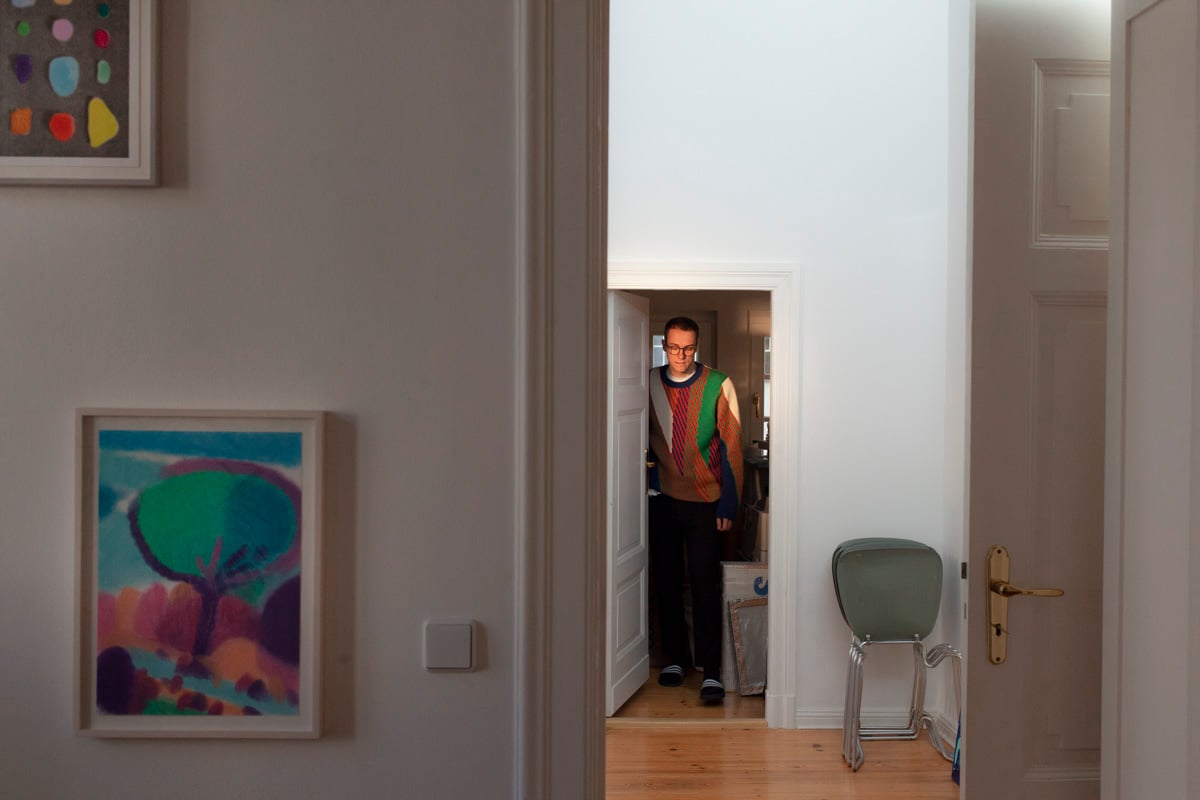
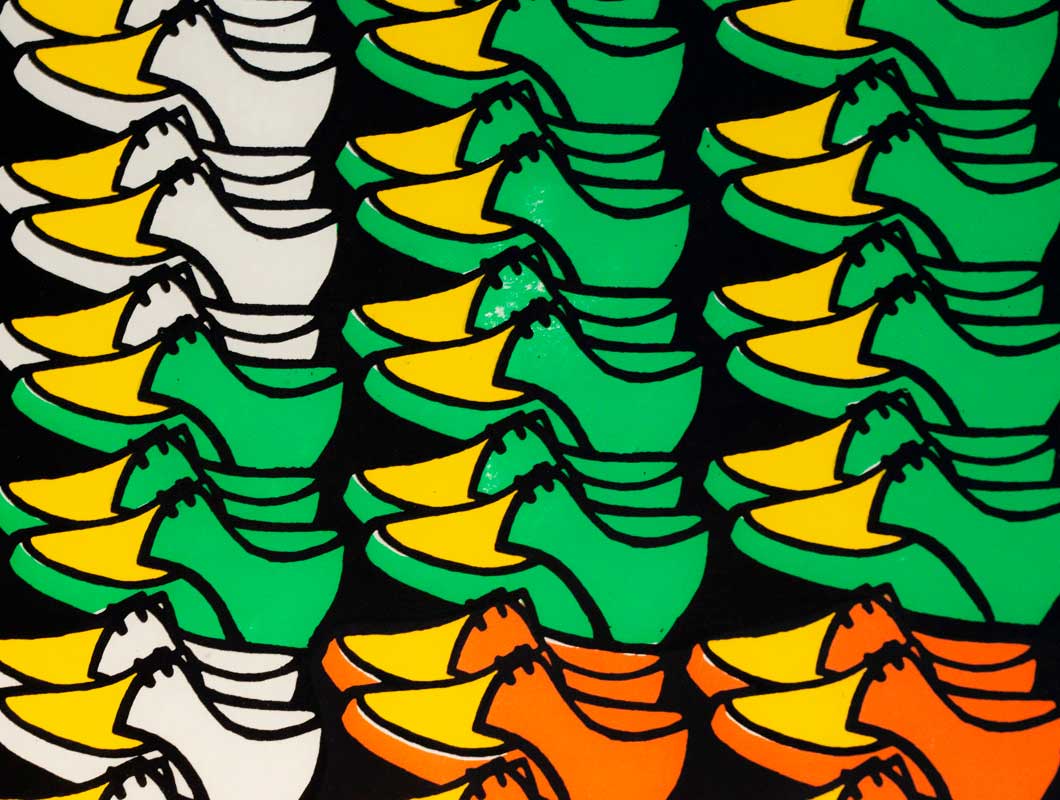
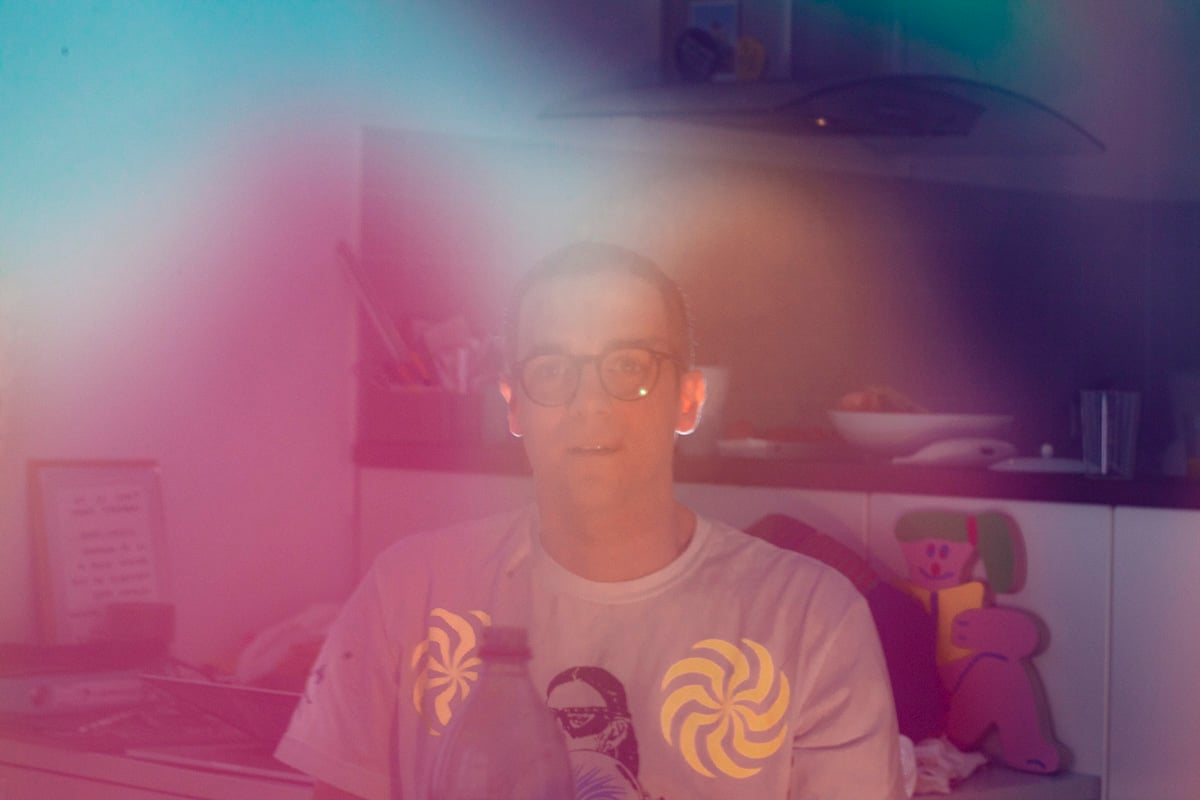

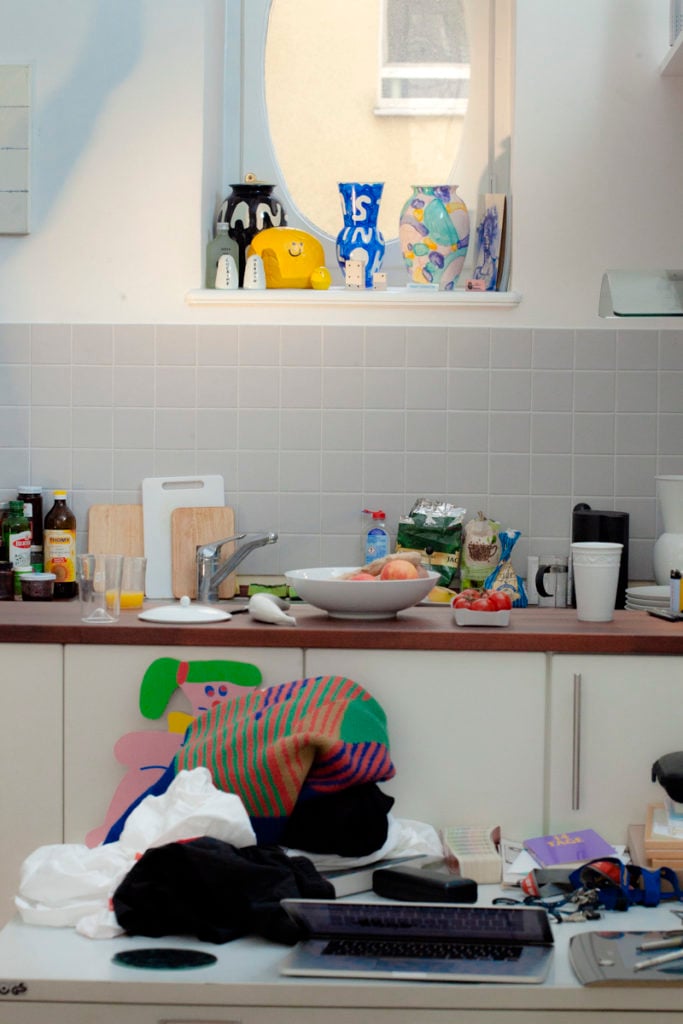
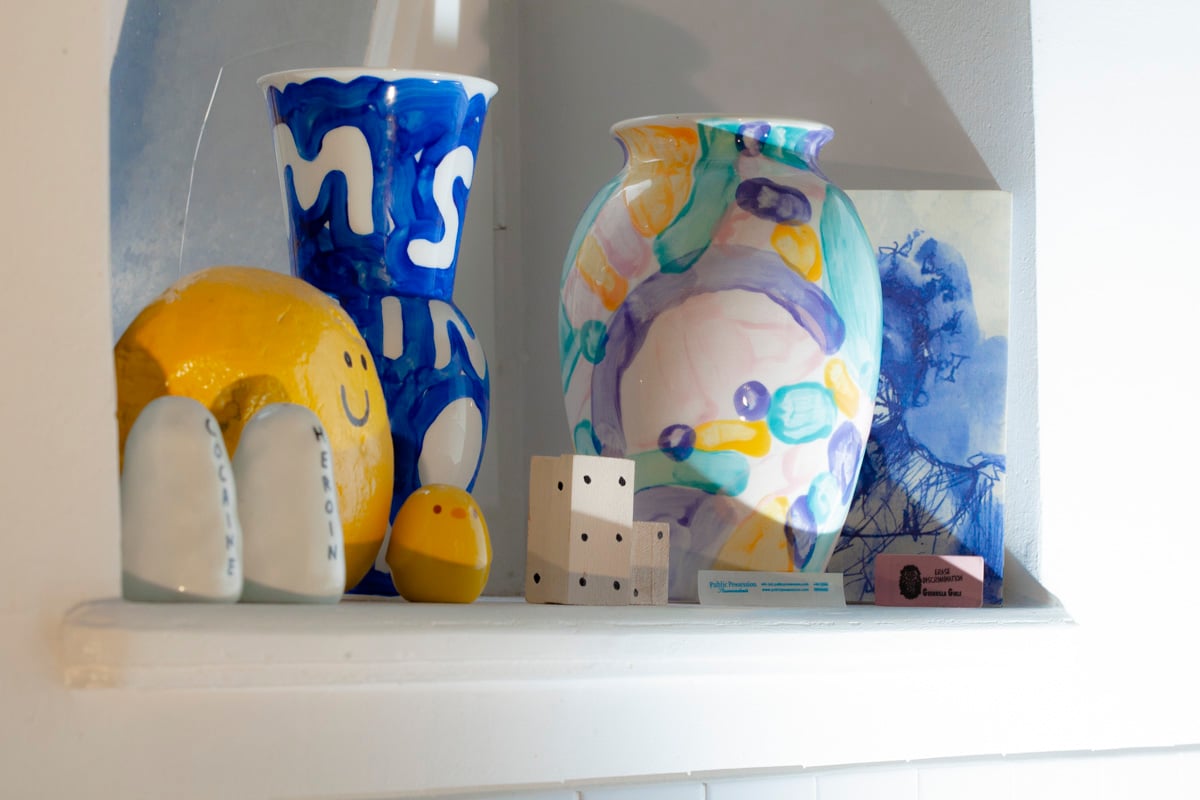
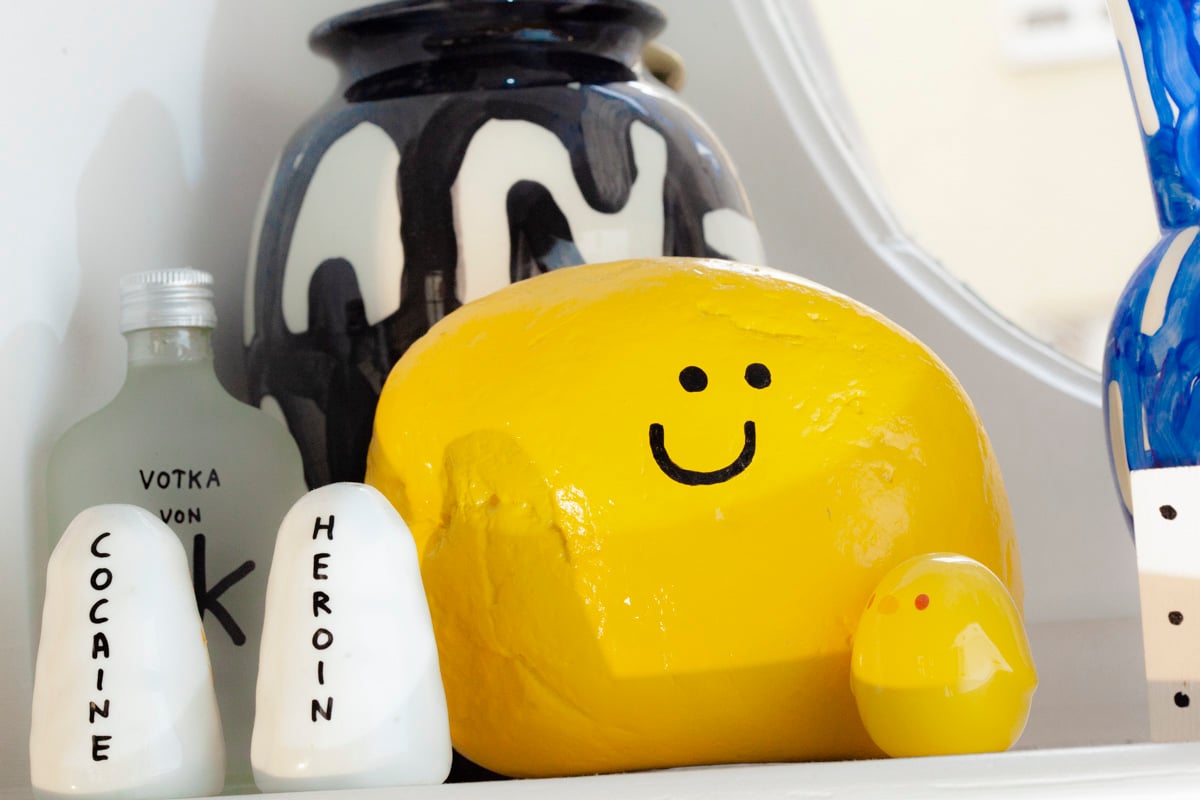
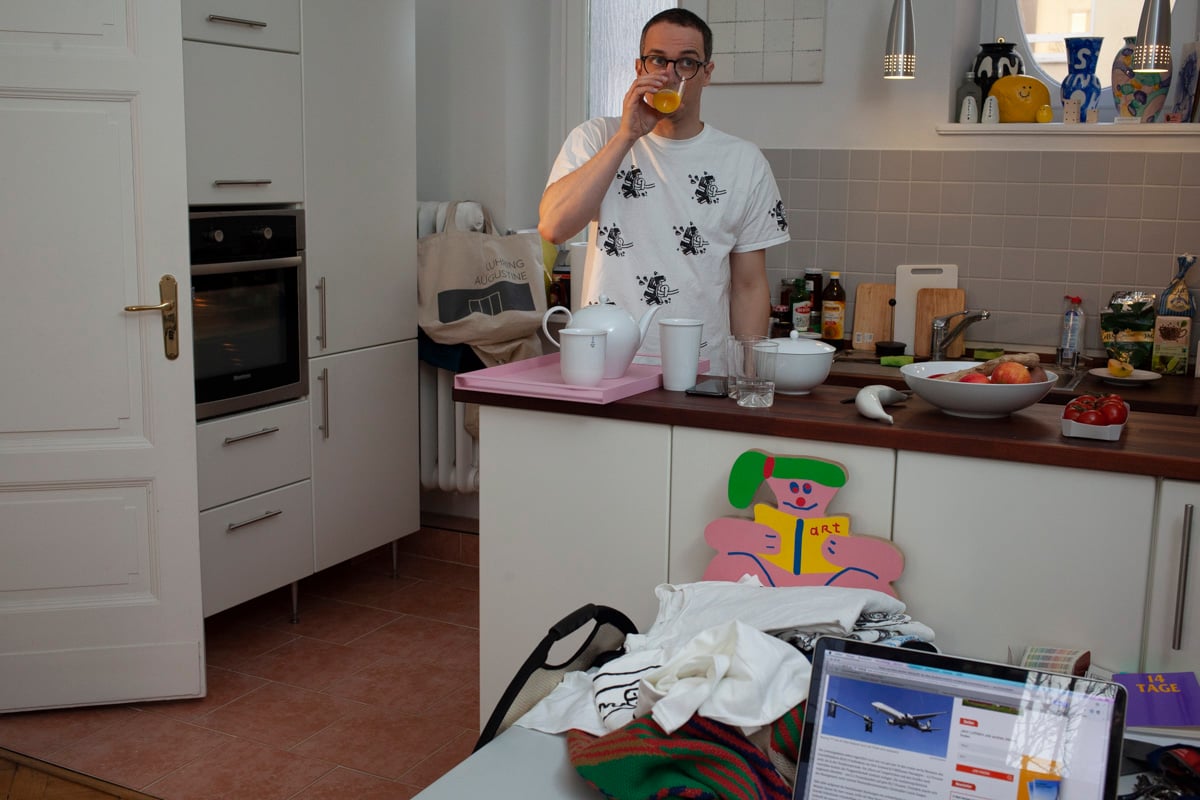
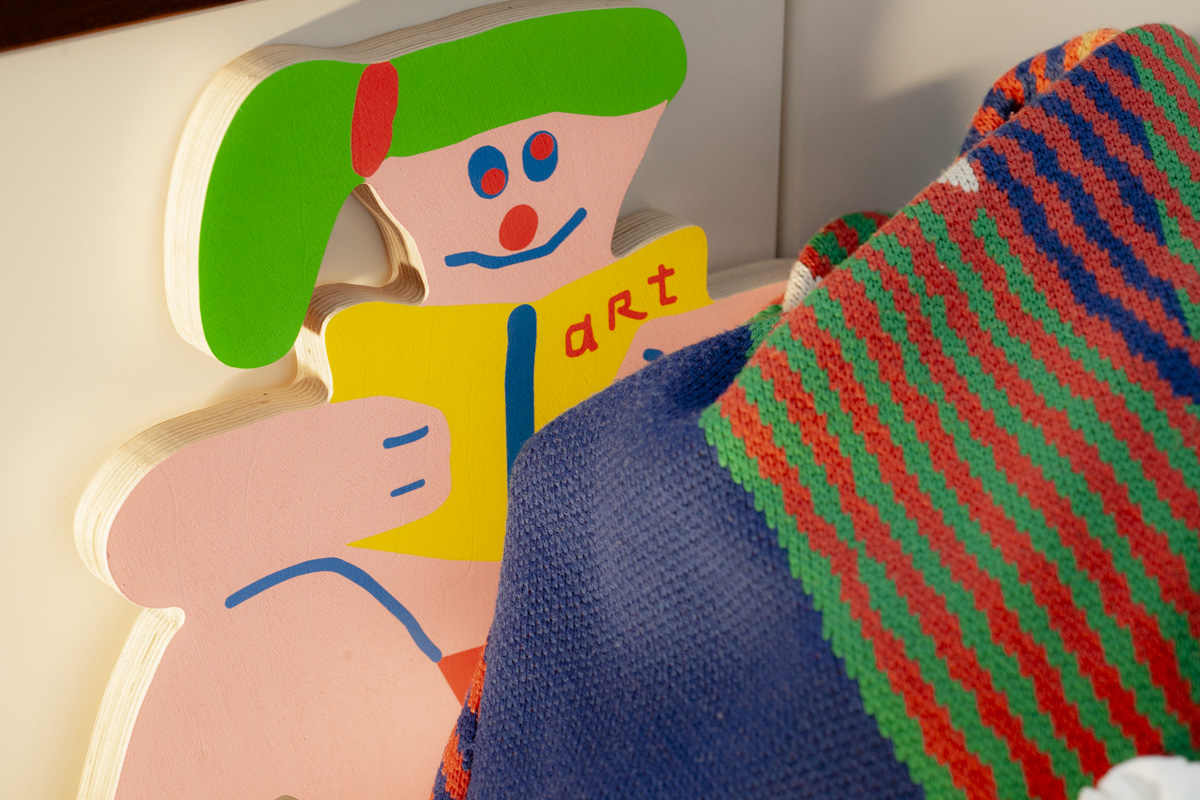
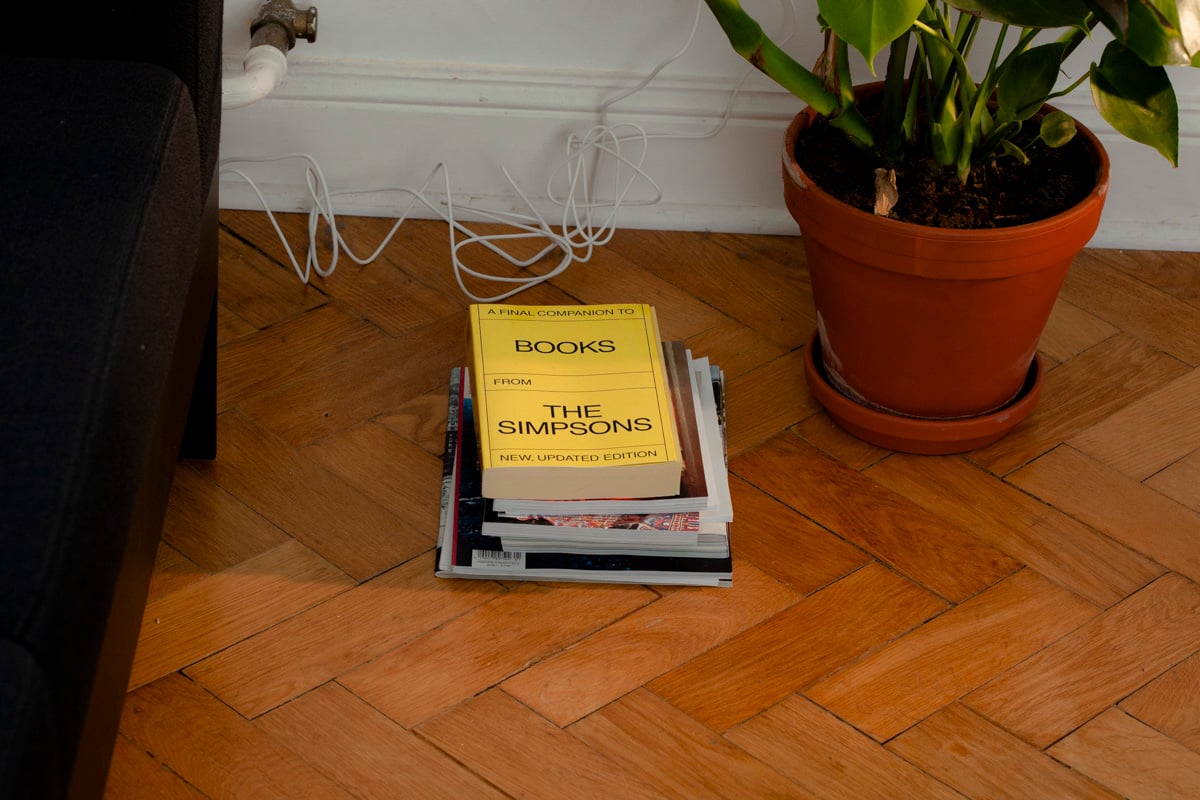
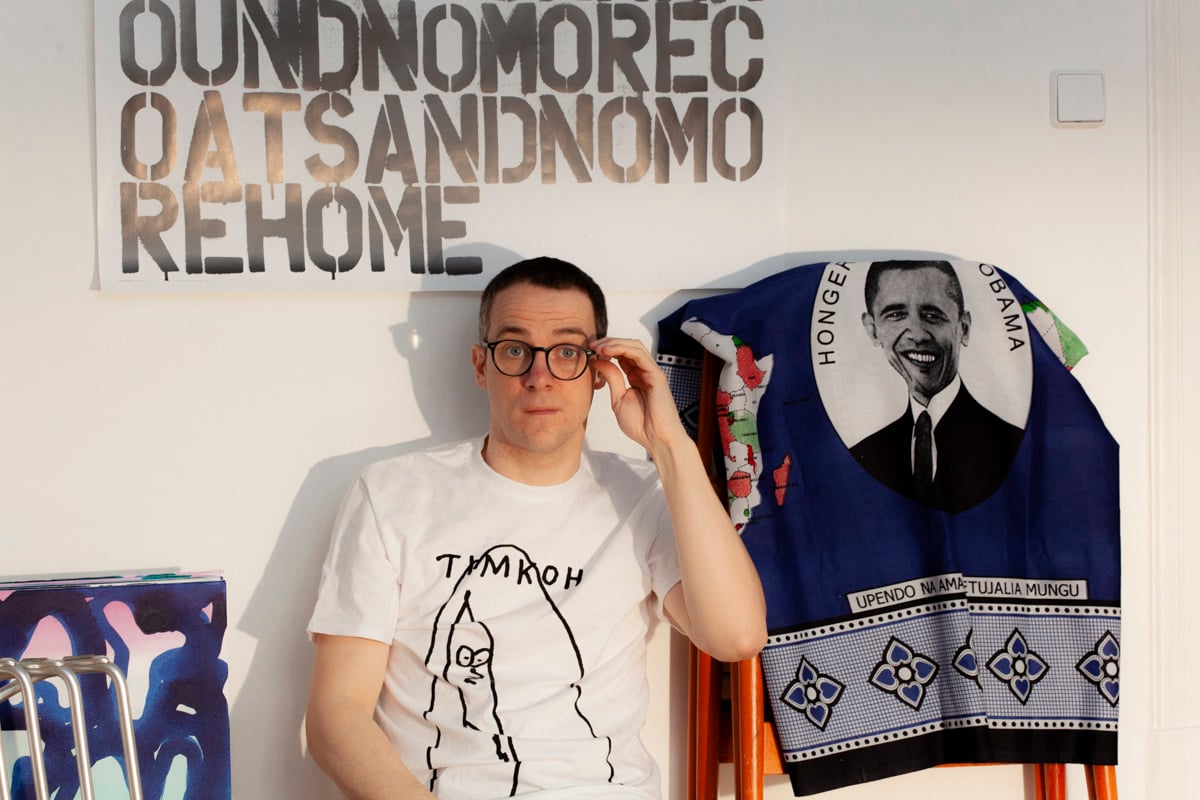
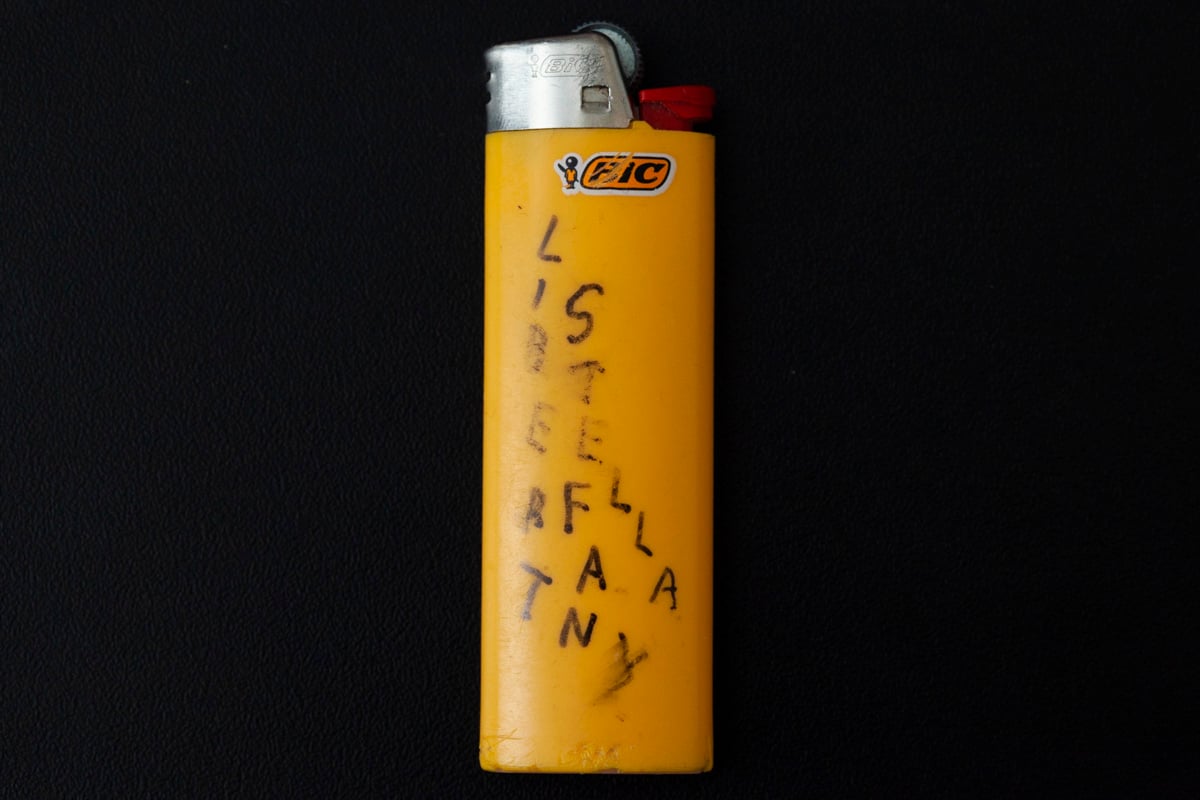
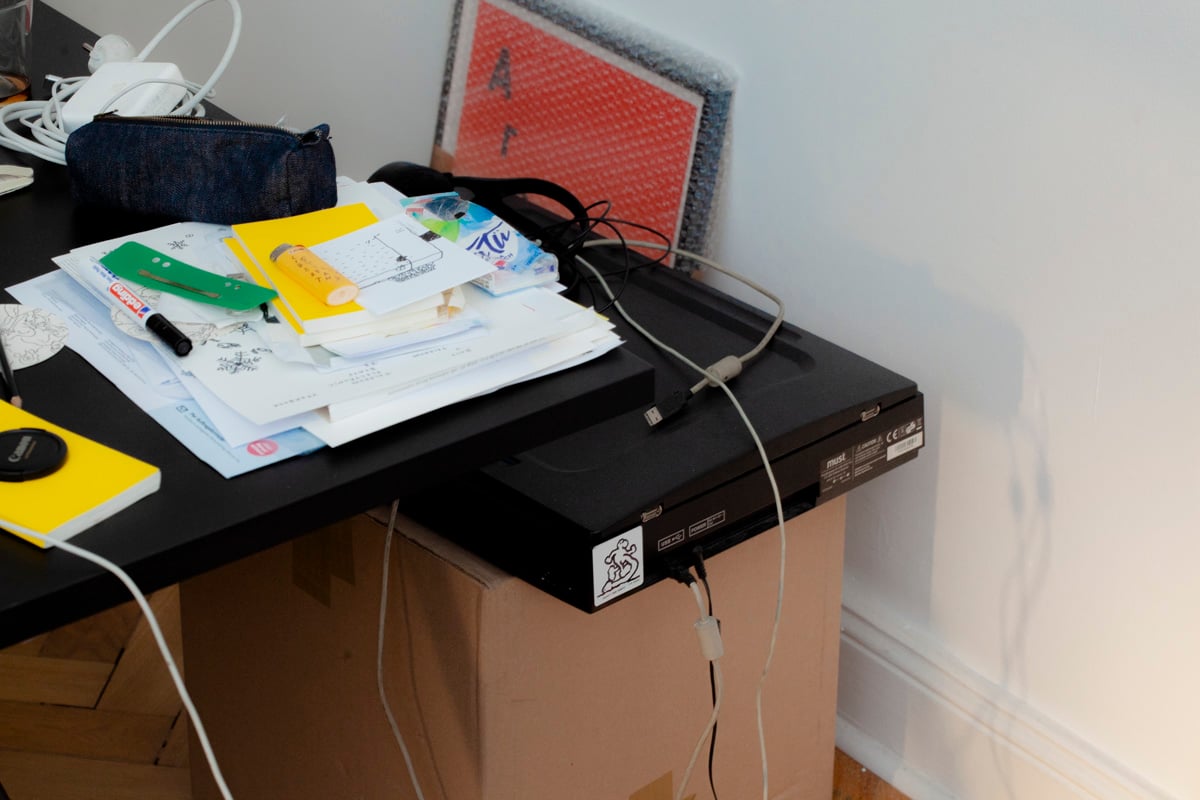
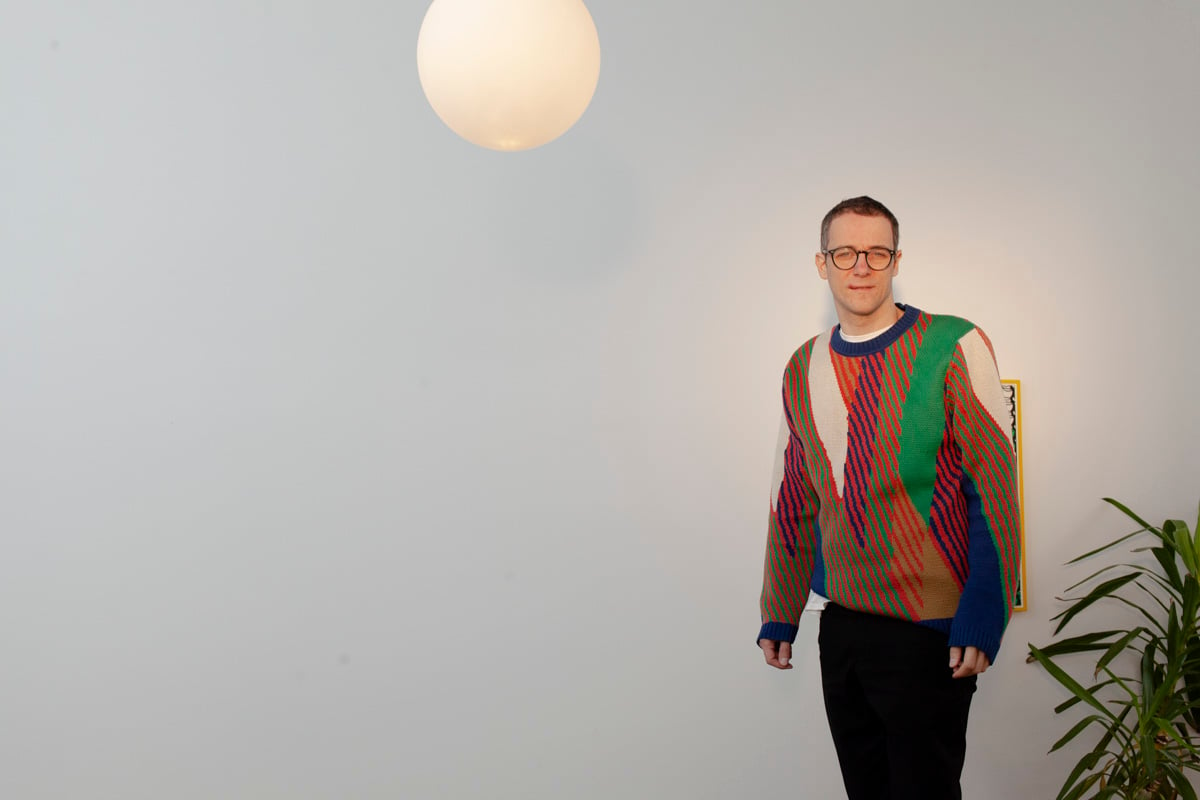
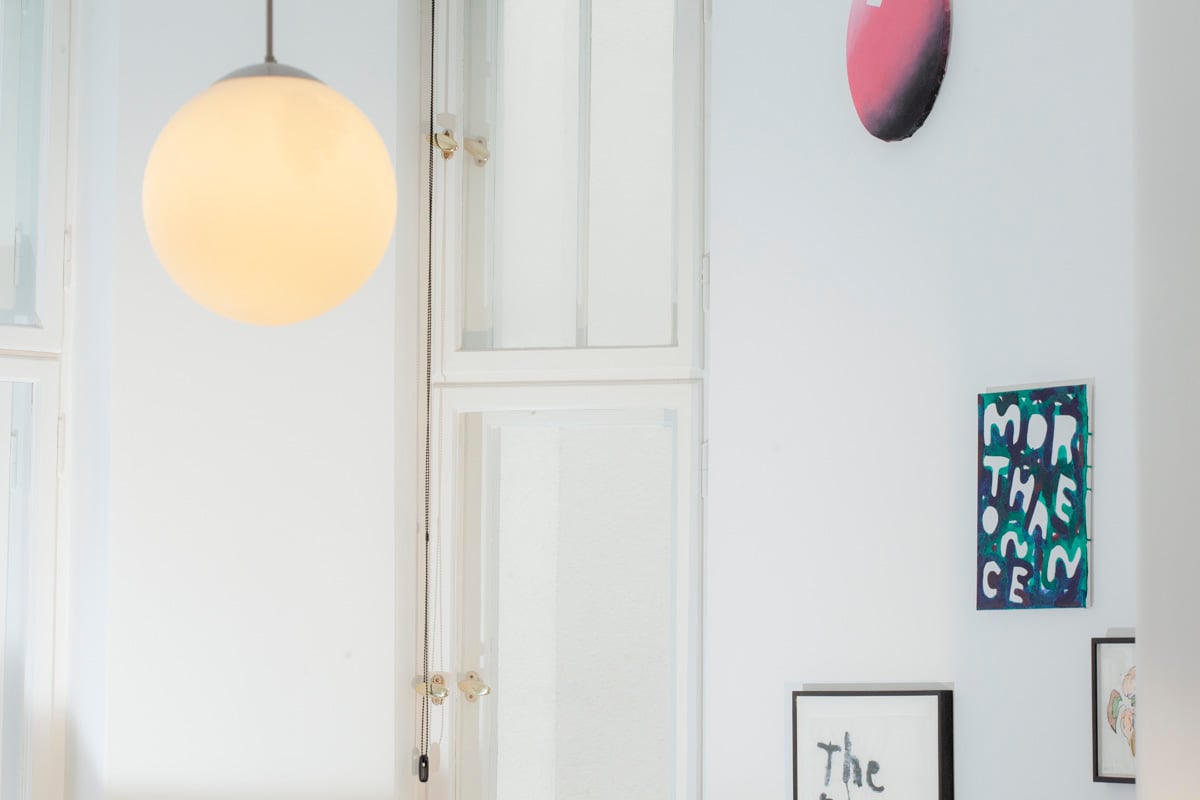
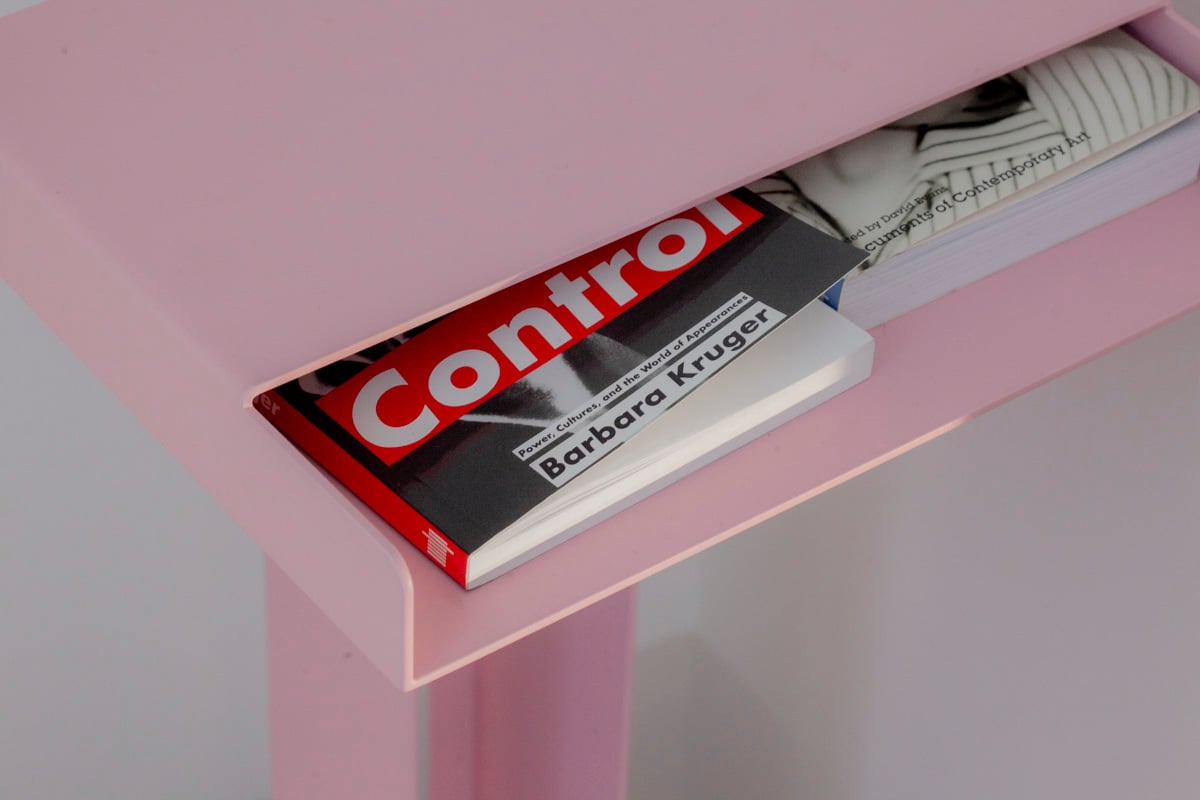
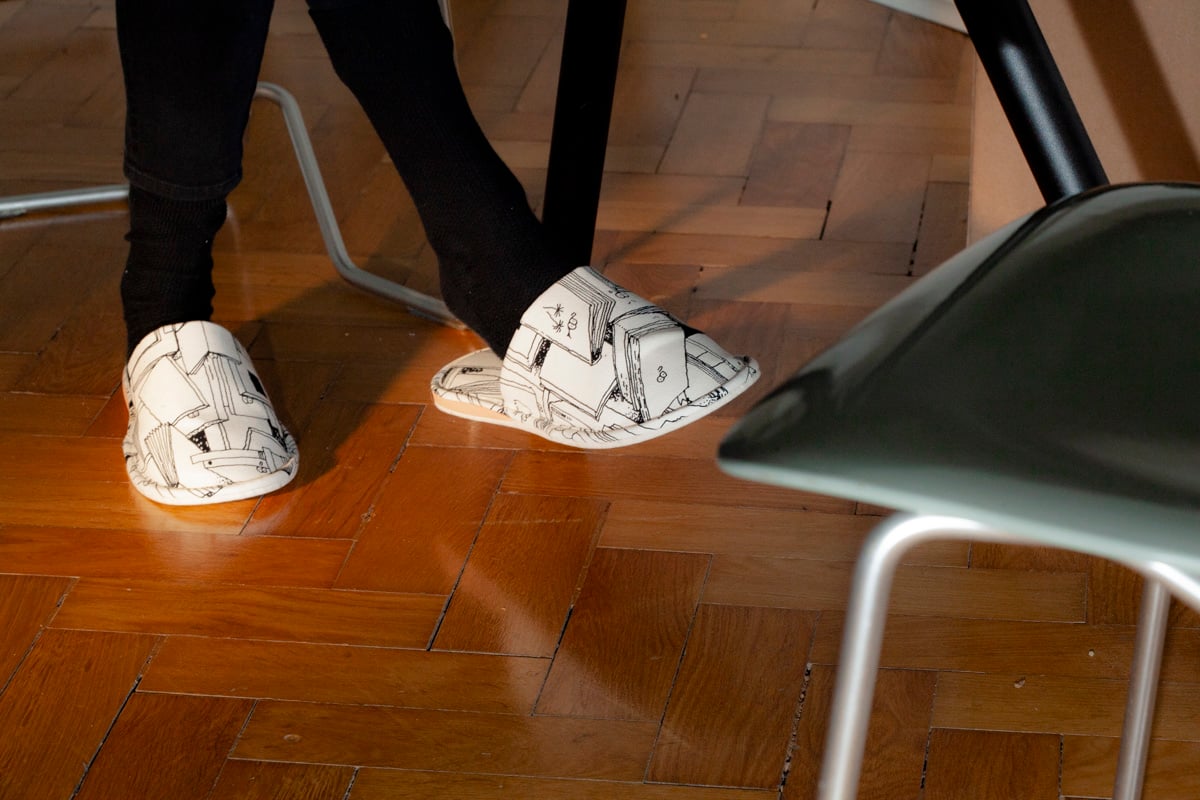
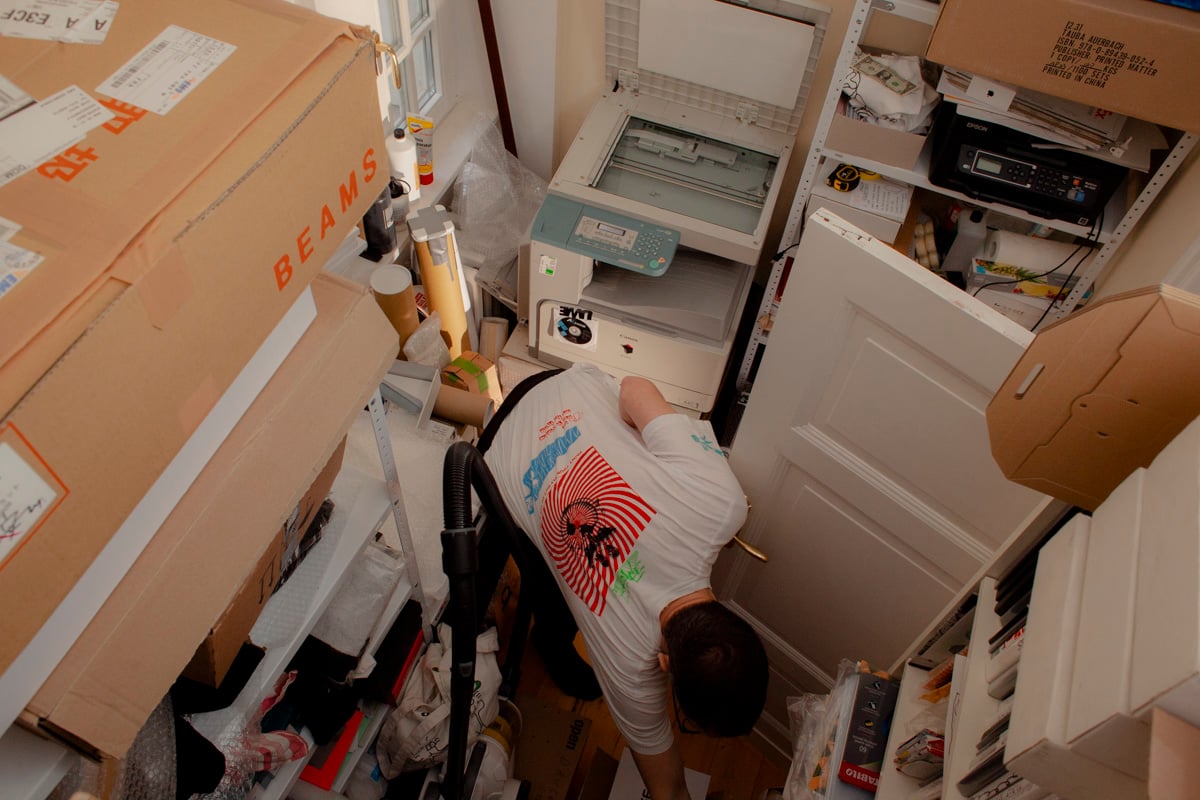






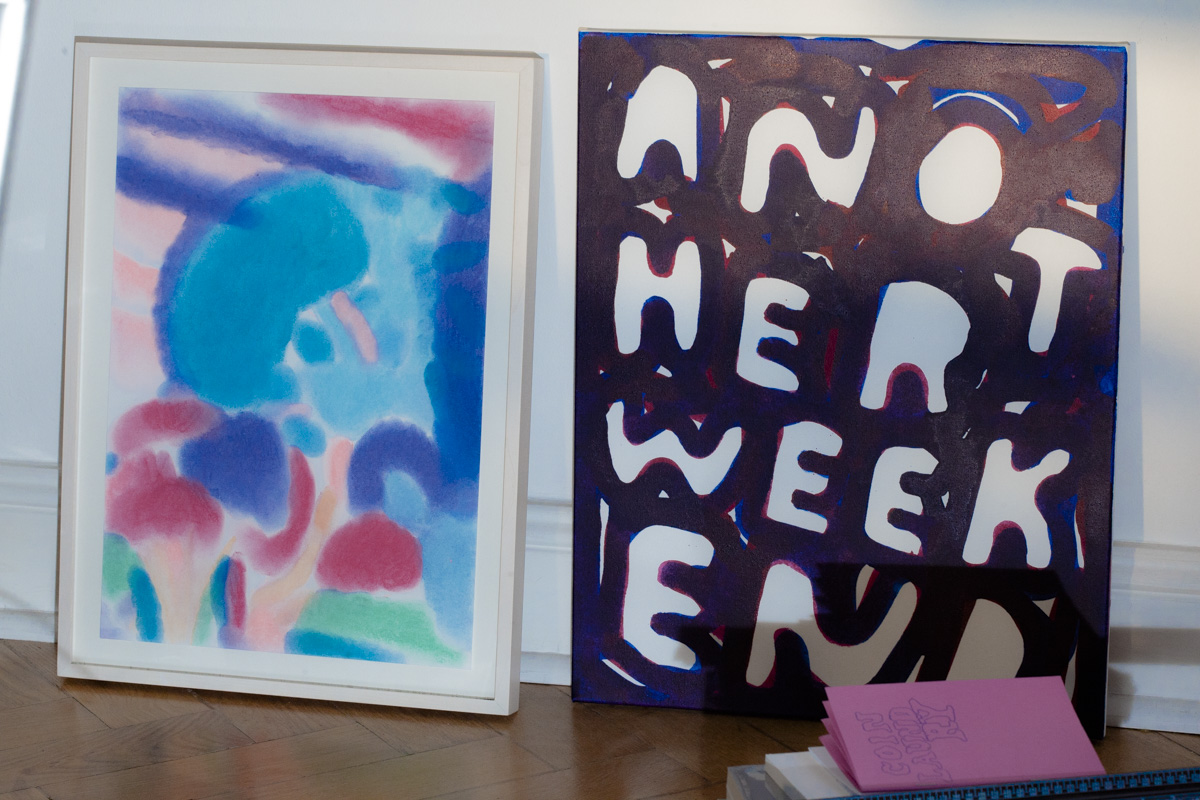
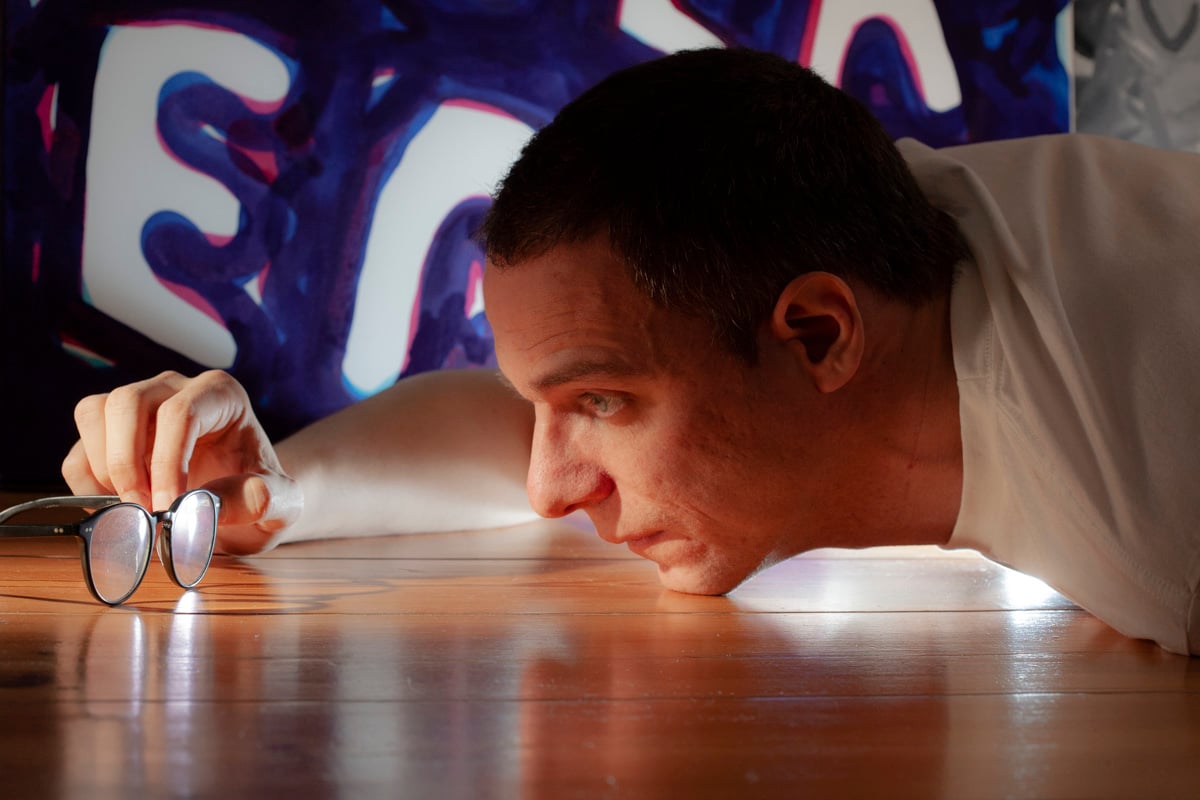
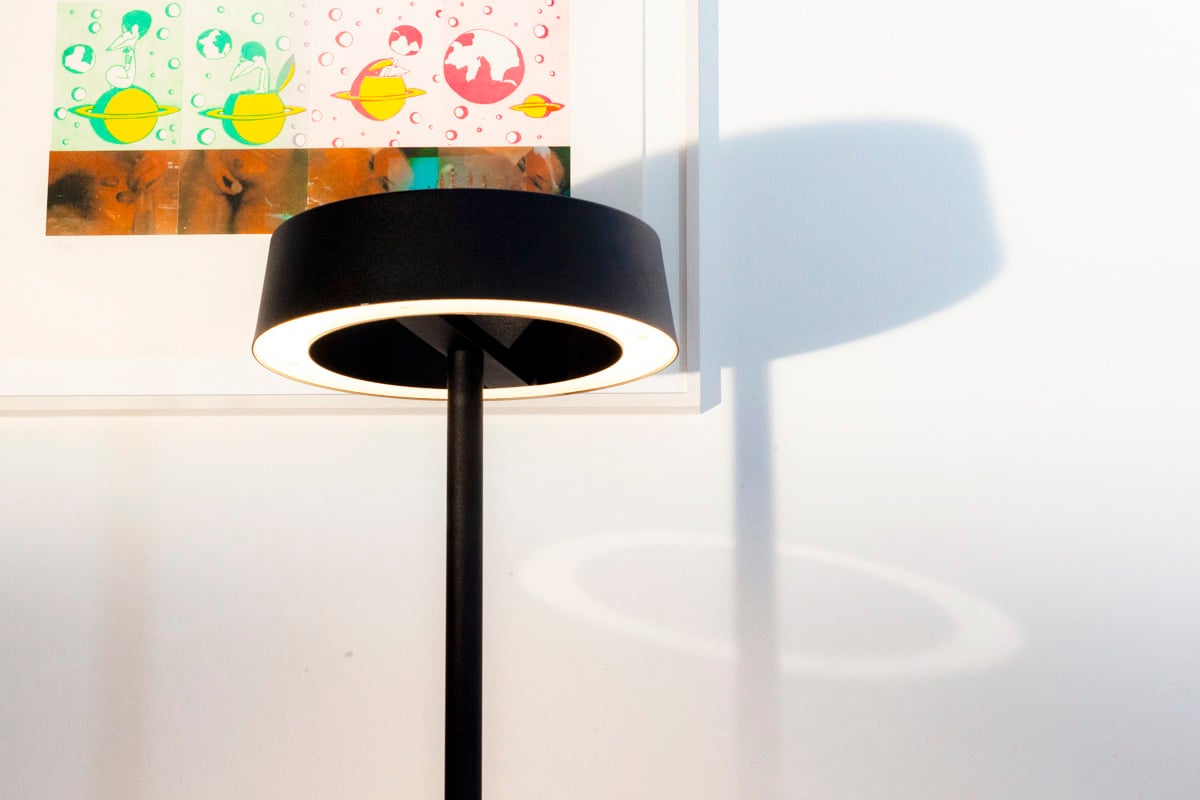
 close
close

